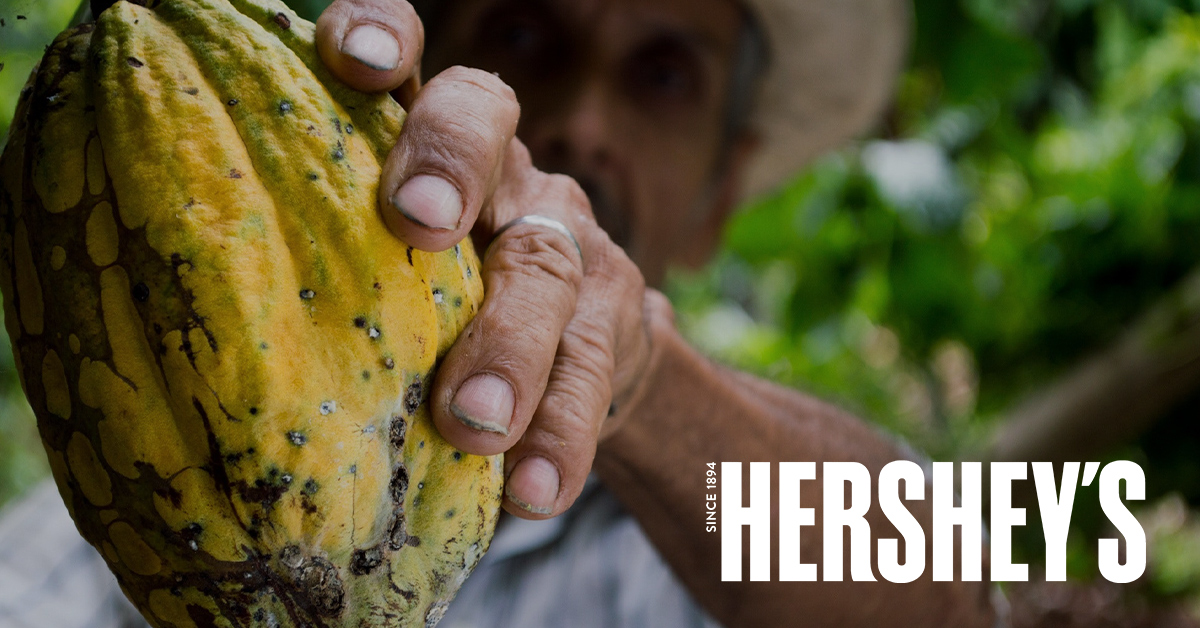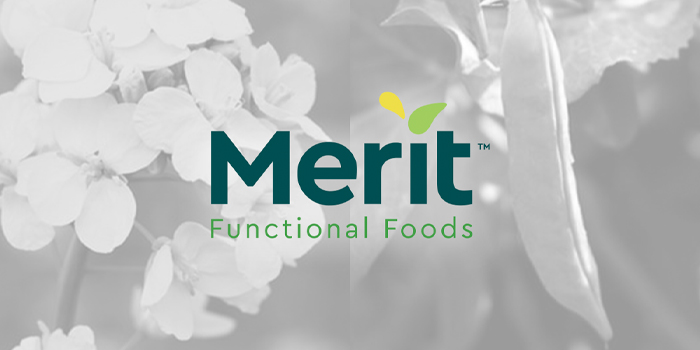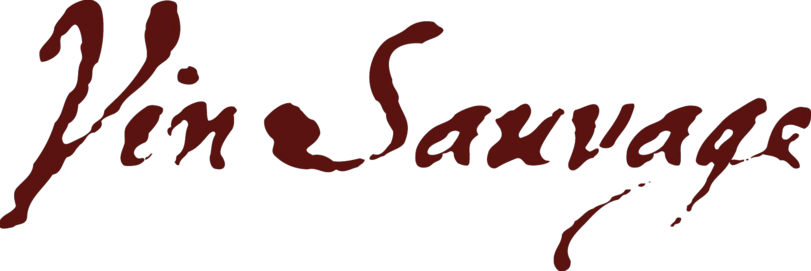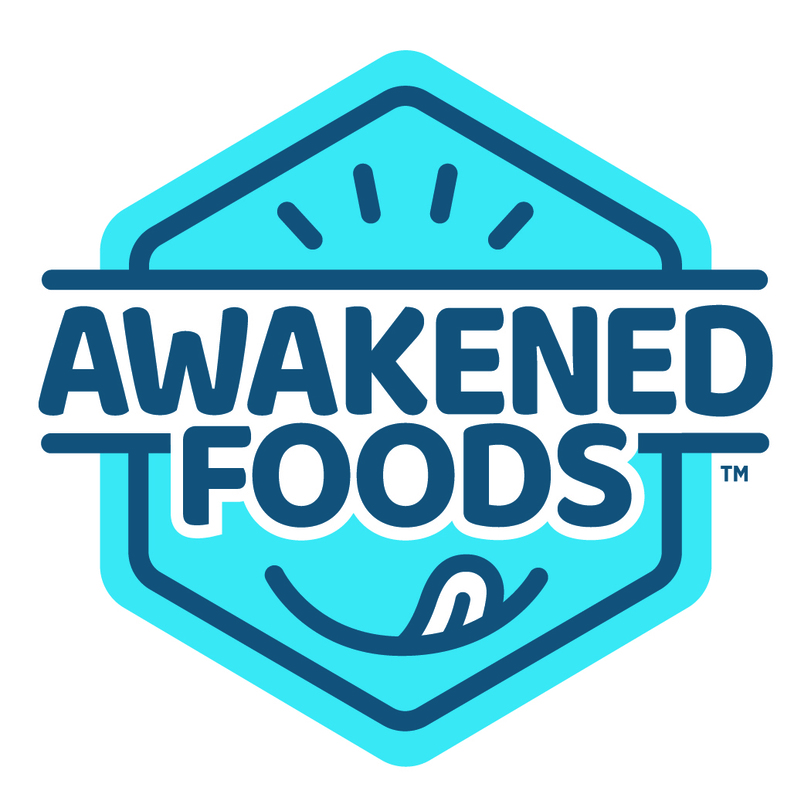News Roundup: Hershey Invests In Social, Environmental Programs; Burcon Makes Bid For Merit

Having spent recent weeks focusing on supply chain improvements, The Hershey Company has now turned its attention to the sourcing practices of its primary ingredient input, cocoa.
On Thursday, Hershey announced two new programs in Côte d’Ivoire aimed at supporting the livelihoods of cocoa farming households and mitigating the company’s environmental footprint in the country.
Developed in collaboration with the Ivory Coast’s cocoa council (Conseil du Café-Cacao), the Rainforest Alliance and humanitarian organization CARE, the Income Accelerator program will support increasing incomes for farmers through cash transfers and investments in village savings and loan associations (VSLAs). The program is set to deliver $600 per household per year to nearly 5,000 cocoa farmers in its network.
“Low producer income is a root cause of child labor and deforestation. We support this Income Accelerator program because the issue of producer income is at the heart of our concerns,” said Yves Brahima Koné, Managing Director at Conseil du Café-Cacao, in a press release.
The second program announced this week will see Hershey invest in the construction of ten primary schools in cocoa farming communities and implement a program focused on preserving the Mabi-Yaya Nature Reserve. Hershey is working directly with the Cote D’Ivoire government organizations on both of these initiatives as well as the Income Accelerator program.
“Access to education for children and environmental conservation are critical components of our broader Cocoa For Good strategy and vital to building healthy communities where cocoa farmers and their families live,” said Chuck Raup, President, U.S., The Hershey Company, in a press release. “We are proud to take an active role in creating greater access to primary schooling and building the critical conservation programming needed to support healthy cocoa ecosystems and farmer income resilience.”
Elsewhere in the world, the byproducts of Hershey’s supply chain is being enjoyed by a non-traditional consumer. Through a partnership with Hershey and Cargill, leftover scraps from the production of candies such as Kit Kat’s, Reese’s, Milk Dud’s and PayDay bars are sent to the ingredient company to be turned into feed for cows, pigs and other livestock for select farms in Pennsylvania, resulting in nearly 35,000 tons of “candy meal” feed per year. The side-stream repurposing program has been operational since 2011 and helps fortify the feed with protein, fat, and sugar and eliminate waste from the chocolate factories.

Burcon Makes Bid for Plant Protein Processor Merit
Merit Functional Foods is seeking new life after Burcon NutraScience joined with an unnamed “industry plant protein company” to submit a bid for the cash-strapped plant-based protein company’s production facility last week.
Burcon, which created the proprietary processes used by Merit to make its plant-based protein isolates and owns a 31.6% share in the manufacturer, announced its intention to bid on the company in March. If successful, the group led by Burcon intends to “restart the facility together” and “strive to reach profitability,” according to a press release.
Other parties are believed to have submitted competing bids by the April 21 deadline. According to a sales process summary document issued in late March, the winning bid is expected to be selected today (April 28) and completed the following week. The sales process is being run by PricewaterhouseCoopers Inc., which stepped in when Merit was placed in receivership in February.
Writing on LinkedIn in March, Merit co-CEO Ryan Bracken said that even though the Winnipeg-based pea and canola processor’s proteins “have been formulated into countless products globally,” it “couldn’t get to the level of cash flow needed to operate the business profitably, quick enough.” The company had also received significant financial support from federal and local governments in Canada.
Kip Underwood, Burcon’s chief executive, said: “We are pleased to participate in the bidding process for the Merit facility. We firmly believe that Burcon’s technologies and process expertise are fundamental to the Merit facility’s future profitability.
“We continue to execute against our strategic themes: 1. Identifying additional revenue streams; 2. Getting closer to markets/customers; and 3. Securing greater influence of the manufacturers of our technology. We are proud of our team for working relentlessly to capitalize on this opportunity in a short amount of time. We look forward with optimism to the outcome of the Merit sales process.”
Citi Cites Caution on Beef, Soy
Global financial giant Citi is taking a new approach to its agribusiness clients with the introduction of updated Enterprise Security Risk Management (ESRM) requirements for its clients working in the beef and soy industries.
The bank is taking a closer look at how both products are impacting specific “sensitive ecoregions” with regard to sourcing in order to ensure its clients align with its goals to mitigate environmental disruption and respect the rights of indigenous peoples. These requirements apply across sectors in soy (including producers, processors and traders) and beef (cattle ranchers, slaughterhouses and processing facilities).
“As a part of this ESRM Policy update, we will review beef clients that are producing in or sourcing from sensitive ecoregions, to confirm they have policies and management plans that demonstrate commitment to 100% traceability of their supply chain in these sensitive regions, with consideration of international norms and industry best practices,” the company wrote in its 2022 Environmental, Social and Governance (ESG) report.
As part of the updated guidelines, clients that operate in or source from sensitive regions are evaluated against independent certification from industry organizations; for beef, that’s the Accountability Framework, while for soy its a framework known as Round Table on Responsible Soy.
“These external certifications and standards require that companies have processes that ensure free, prior and informed consent for Indigenous communities, among other environmental and social principles and criteria,” the company wrote in the ESG report.
Layoffs Reach Tyson, Utz
Poultry giant Tyson announced another round of layoffs this week following the closure of two processing plants last month which resulted in the termination of nearly 1,700 employees.
The most recent round of cuts will eliminate 10% of corporate roles as well as 15% of Tyson’s senior leadership team. Impacted individuals will begin receiving notices over the next week, according to an email memo from CEO Donnie King sent to all employees this week. The staff reductions were made in an effort to reduce costs as the company’s profits continue to decline.
Elsewhere, snack maker Utz announced this week it will close a production facility in Alabama, resulting in the loss of approximately 175 jobs. The facility will officially close its doors by July and about 100 of its total 275 employees will be transferred to work at the company’s distribution center in Birmingham. The shift was made to reduce costs and increase efficiency within the company’s manufacturing operations.


















